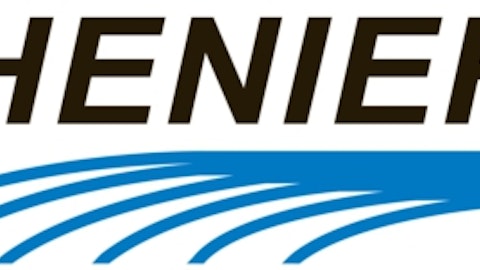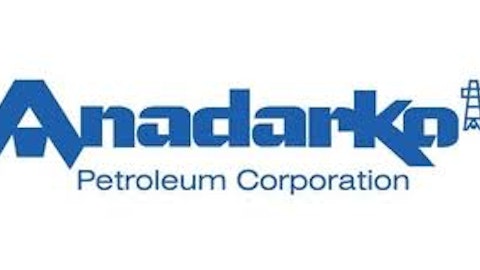
Let try and answer these questions by taking a close look at the recent developments in the natural gas and oil markets –Chesapeake’s core business.
Natural gas is making a comeback
The tumble in the price of natural gas during the first half of last year didn’t repeat this year. Moreover, this year the colder-than-normal weather and the tropical storms that hit the East Coast may have all contributed to the recovery in natural-gas prices.
Demand for natural gas in the residential/commercial sectors, which account for roughly 40% of the entire U.S demand, rose during the first quarter of the year. Thus, during the first quarter of 2013, the average price of natural gas was $3.47/mcf compared to an average sales price of $1.77/mcf that Chesapeake Energy Corporation (NYSE:CHK) received for its natural gas it sold in 2012.
The average price of natural gas during 2012 was $2.17. Considering the ratio of sales-price to average-price of 63%, Chesapeake’s natural gas sale price in the first quarter of 2013 might be around $2.17/mcf. That’s still much higher than last year’s price – nearly 27% higher than the price in the first quarter of 2012.
So at least on this front, Chesapeake Energy Corporation (NYSE:CHK) is likely to exceed last year’s natural-gas sales results. Nonetheless, the share of natural gas out of Chesapeake’s total sales tumbled from 60% in 2010 to 16% in 2012. This low share is likely to rise in the first quarter of 2013, but won’t come close to the high rate recorded in 2010. So the effect the rally of natural gas has on the company’s total revenue is likely to be small.
Despite the drop in natural-gas prices last year, the company’s natural-gas production grew in 2012 by nearly 12.4% (y-o-y). The asset sales the company made in recent months are likely to pull down Chesapeake Energy Corporation (NYSE:CHK)’s volume of production. In its recent yearly outlook, the company’s volume of natural gas production will reach 1,030-1,070 bcf, which is a drop of between 5% and 9%.
Chesapeake isn’t alone in cutting its natural-gas production. Other oil and gas companies also reduced their natural-gas production, and the low natural-gas price is likely to suppress production further compared with previous years.
Devon Energy Corporation (NYSE:DVN), one of the leading natural gas producers, cut its natural gas production by 2% (y-o-y) in 2012. This reduced the company’s natural gas sales by $52 million last year. Net natural gas revenue fell by 35% during 2012 – mostly due to the price drop. Share of natural gas out of total revenue also fell from 36% in 2010 to 23% in 2012. Even if this company reduces its natural gas production, it will still have a better year than it had in 2012.
Anadarko Petroleum Corporation (NYSE:APC), another leading oil and gas producer, also suffered from last year’s drop in the price of natural gas. According to the company’s financial reports, during 2012 revenue fell by 4%. Most of the decline was due to lower natural-gas prices. The company’s natural gas revenue fell by almost 26% (y-o-y).
But for Anadarko, unlike Devon or Chesapeake Energy Corporation (NYSE:CHK), the share of natural gas was much lower even before the crash of natural gas prices in 2012. The share of revenue in natural gas fell from 23.6% in 2011 to 18% in 2012. So the effect natural gas had on its revenue was smaller than it was on Devon or Chesapeake. Let’s move to oil.




